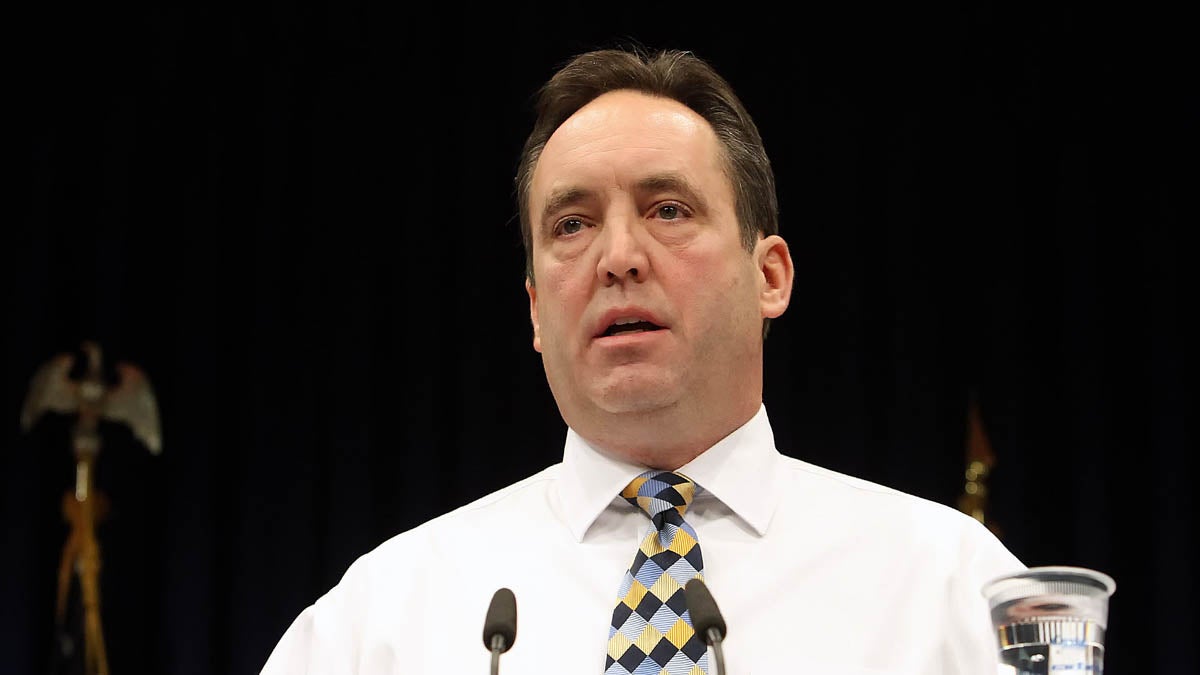Pennsylvania House, Senate tussle over pension payments

GOP Senate Majority Leader Jake Corman says delaying pension payments "adds a little budget relief ... so we can fund our schools better." Pennsylvania House leaders disagree. (AP file photo)
Pennsylvania House and Senate Republicans are at odds over how much the commonwealth should pay into its retirement systems.
Tight finances compelled the Senate to approve a plan last week that would cut roughly $170 million from scheduled state payments to its pension funds.
House Republicans have always said they would fight such a move, since the commonwealth’s pension systems are already so underfunded. On Tuesday morning, a House committee reversed the Senate’s proposed payment reductions (or “collars,” in pension-speak).
Senate Republicans were irked by the change.
“We have concerns about the budgetary impact of that move,” said Jenn Kocher, spokeswoman for the Senate GOP, in an email. “We are still reviewing that at this point.”
Senate Republicans have pointed out that if the House is going to insist on meeting the scheduled payments to the pension systems, it will be that chamber’s responsibility to come up with an extra $170 million.
GOP Senate Majority Leader Jake Corman said delaying the payment “adds a little budget relief … so we can fund our schools better.”
But the House committee’s actions brought cautious praise from Jim McAneny, director of the Public Employee Retirement Commission, which advises the Legislature on pension-related legislation.
“I am always going to make arguments against further collaring,” McAneny said.
The state’s pension funds are saddled with more than $50 billion in debt, due in large part to times in the past when the commonwealth shirked its obligations to the systems.
“We’ve reached the point now where we’re starting to pay what we’re supposed to pay, but it’s a lot of money,” said McAneny. “The reason why it’s so much money is ’cause we kept putting off the contributions we were supposed to make.”
The pension proposal is considered a critical piece of a state budget deal. Senate Republicans have said pension reform must be part of the budget discussions.
The legislative dispute over trimming pension contributions is one of many unresolved issues in a sprawling budget negotiation.
The state’s spending plan is nearly six months overdue.
WHYY is your source for fact-based, in-depth journalism and information. As a nonprofit organization, we rely on financial support from readers like you. Please give today.

